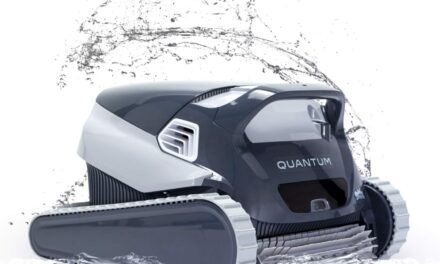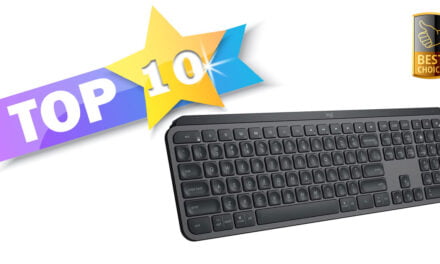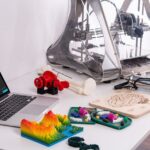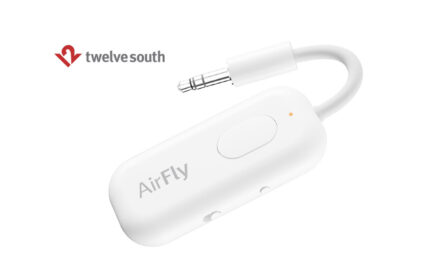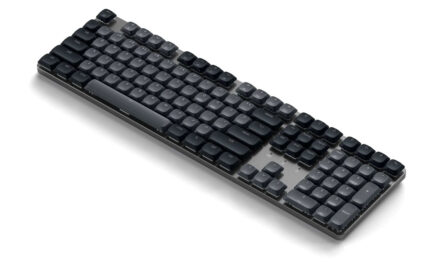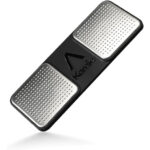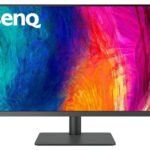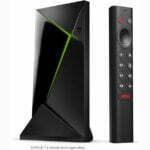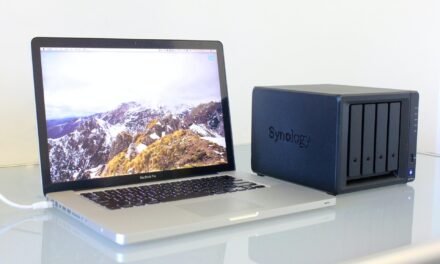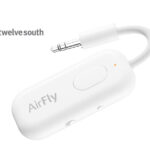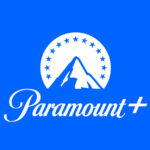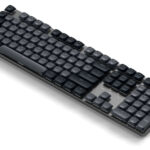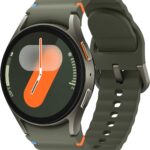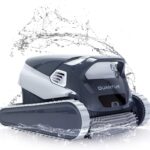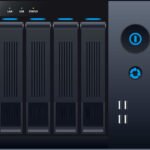
Affordable NAS Systems 2025 – Your Home Network Solution

As a tech enthusiast, I have always been fascinated with Network Attached Storage (NAS) drives. These devices have become increasingly popular in recent years, especially for home users. NAS drives allow you to create your own personal cloud, where you can store all your important data and access it from anywhere. In this article, I will introduce you to the world of NAS drives and help you choose the best one for your home network.
If you would like to read more about the reasons you might want a NAS system in your home, please check out this article: NETWORK ATTACHED STORAGE (NAS), NOT JUST FOR THE OFFICE
Table of Contents
Benefits of using NAS drives for home networks
The main advantage of using a NAS drive is that it allows you to store all your data in one centralized location. This makes it easy to access your files from any device connected to your network. With a NAS drive, you can easily stream movies, music, and photos to all your devices without the need for additional storage.
Another benefit of using a NAS drive is that it provides a high level of data security. Most NAS drives come with built-in RAID (Redundant Array of Inexpensive Disks) technology, which ensures that your data is always safe and secure. This means that even if one of your hard drives fails, your data will still be safe on the remaining drives.
Finally, NAS drives offer a high level of flexibility. You can easily expand your storage capacity by adding more hard drives to your NAS drive. This means that you can start with a small capacity NAS drive and then gradually add more storage as your needs grow.
Factors to consider when choosing a NAS drive
When choosing a NAS drive for your home network, there are several factors to consider. The first is the number of bays. Most NAS drives come with either two or four bays. If you have a lot of data to store, it’s a good idea to choose a NAS drive with more bays.
Another factor to consider is the CPU and RAM. A NAS drive with a faster CPU and more RAM will provide better performance, especially if you plan to use it for streaming media.
You should also consider the type of RAID technology that the NAS drive uses. Some NAS drives use RAID 1, which provides mirroring of data between two drives. Others use RAID 5 or RAID 6, which provides data striping across multiple drives.
Finally, you should consider the software that comes with the NAS drive. Some NAS drives come with excellent software that makes it easy to set up and manage your storage. Other NAS drives have more limited software that can be difficult to use.
Top 6 NAS Drives for Home Networks
Synology 2-Bay DiskStation DS223j

The Synology 2-Bay DiskStation DS223j is a budget-friendly NAS designed for home users looking for basic file storage, backup, and media streaming. Powered by a Realtek RTD1619B processor with 1GB of DDR4 RAM, it supports up to two drives with a maximum capacity of 36TB. Running Synology’s DSM software, it offers essential features like file syncing, remote access, and data protection, but its limited RAM restricts multitasking and heavier applications. While it lacks support for more advanced features like virtualization or Plex hardware transcoding, it remains a solid choice for users needing simple, reliable network storage.
Pros:
- Affordable Entry-Level NAS – Budget-friendly option for home users needing basic storage and backup.
- User-Friendly DSM Software – Synology’s DiskStation Manager (DSM) offers an intuitive interface with essential apps.
- Low Power Consumption – Energy-efficient design makes it ideal for 24/7 operation without high electricity costs.
Cons:
- Limited RAM (1GB, Non-Expandable) – Restricts multitasking and performance with multiple apps.
- No Hardware Transcoding – Lacks native support for Plex hardware transcoding, limiting media streaming capabilities.
- Basic Hardware – Realtek CPU is sufficient for file storage but struggles with demanding applications.
Our Pick
Synology 2-Bay DiskStation DS223j
View
$189.99
DS223j is an efficient one-stop solution for all your data storage and sharing needs. With two bays of storage and Synology DiskStation Manager (DSM) on board, the DS223j allows you to create a private cloud to protect your files, share your data across several devices, store security footage with intelligent video surveillance tools, and more.
We may earn a commission if you make a purchase, at no additional cost to you.
03/09/2025 10:03 am GMT
Synology 2-Bay NAS DS223
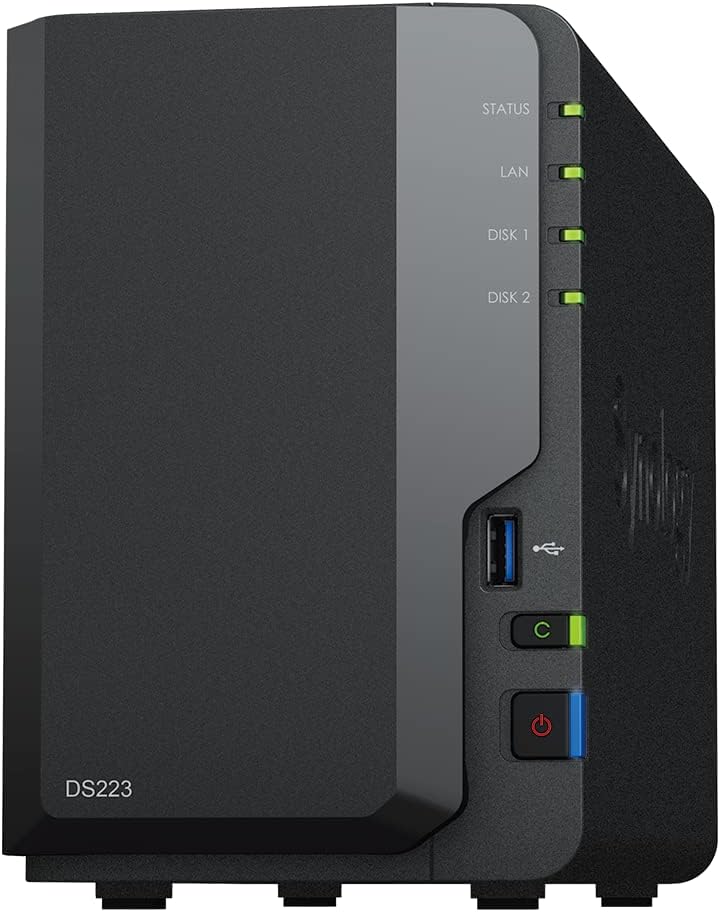
The Synology 2-Bay NAS DS223 is a compact network storage solution designed for home users and small offices. Powered by a Realtek RTD1619B quad-core processor and 2GB of RAM, it supports up to 36TB of storage and runs on Synology’s DSM software, offering easy file management, data backup, and remote access. While it provides reliable performance for everyday use, it has some hardware limitations.
Pros:
- User-Friendly DSM Software – Intuitive interface with built-in apps for backup and file sharing.
- Low Power Consumption – Efficient design suitable for 24/7 operation.
- Quiet Operation – Runs with minimal noise, making it ideal for home environments.
Cons:
- No Hardware Transcoding – Lacks support for Plex hardware transcoding, limiting media streaming.
- Non-Expandable RAM – Fixed 2GB memory may bottleneck performance with multiple apps.
- Limited Advanced Features – Lacks virtualization and other high-end capabilities found in pricier models.
Synology 2-Bay NAS DS223
View
$279.43
Designed with both leisure and work in mind, the entry-level 2-bay DS223 has all the tools you need to create an intuitive and secure platform to centralize, organize, and share your data. Leverage the license-free, built-in solutions available in Synology DiskStation Manager (DSM) to create your own private cloud, access files from any device, and work efficiently on business projects with clients and collaborators.
We may earn a commission if you make a purchase, at no additional cost to you.
03/09/2025 10:03 am GMT
Synology DS920+

The Synology DS920+ is a great option for a budget NAS drive for home use. It’s a four-bay NAS drive that has a quad-core processor and 4GB of RAM, which is more than enough for basic home use. The DS920+ supports up to 64TB of storage and comes with Synology’s DiskStation Manager (DSM) software, which is easy to use and provides a lot of customization options. It also has built-in media streaming capabilities and supports a wide range of apps.
Pros:
- Quad-core processor and 4GB of RAM
- Easy-to-use DiskStation Manager software
- Built-in media streaming capabilities
- Supports a wide range of apps
- High storage capacity
Cons:
- Relatively expensive compared to other options on this list
TerraMaster F2-212

The TERRAMASTER F2-212 2-Bay NAS is an entry-level network-attached storage device aimed at home users and small offices looking for basic file storage and media streaming. Powered by a Realtek RTD1619B quad-core processor and supporting up to 44TB of storage, it offers a decent balance between affordability and functionality. While it provides essential NAS features like remote access and backup solutions, it lacks the advanced software ecosystem found in higher-end competitors.
Pros:
- Affordable price point for a 2-bay NAS
- Supports up to 44TB storage capacity
- Quiet and energy-efficient operation
Cons:
- Basic user interface with fewer customization options
- Limited app ecosystem compared to Synology and QNAP
- No built-in M.2 NVMe slots for caching
TERRAMASTER F2-212 2Bay NAS
View
$169.99
The Ultimate Home Network Storage Solution: The F2-212 NAS storage is an affordable and high-performance 2-bay NAS optimized for home and SOHO users, running the latest TOS 5.1 operating system.
We may earn a commission if you make a purchase, at no additional cost to you.
03/09/2025 10:03 am GMT
BUFFALO LinkStation 720

The Buffalo LinkStation 720 is a step up from the LinkStation 520 and offers better performance and more storage options. It’s a two-bay NAS drive that has a dual-core processor and 1GB of RAM, which is sufficient for basic to moderate home use. The LinkStation 720 supports up to 16TB of storage and comes with Buffalo’s user-friendly web interface, which provides basic customization options. It also has built-in media streaming capabilities and supports a range of apps.
Pros:
- Dual-core processor and 1GB of RAM
- Affordable price
- User-friendly web interface
- Built-in media streaming capabilities
- Supports a range of apps
- Multiple storage options
Cons:
- Limited RAM compared to other options on this list
- Limited storage capacity compared to other options on this list
2X 2TB Drives Included
BUFFALO LinkStation 720 4TB 2-Bay Home Office NAS Storage
$309.99
$279.99
View
Simply connect the LinkStation to your router and enjoy shared network storage for all your devices. The NAS is compatible with Windows and macOS, and Buffalo's US-based support is on-hand 24/7 for installation walkthroughs
We may earn a commission if you make a purchase, at no additional cost to you.
03/09/2025 10:03 am GMT
Synology 2 bay NAS DiskStation DS220+

The Synology 2 bay NAS DiskStation DS220+ is another great budget NAS drive for home use. It’s a two-bay NAS drive that has a dual-core processor and 2GB of RAM, which is sufficient for basic to moderate home use. The DS220+ supports up to 32TB of storage and comes with Synology’s DiskStation Manager (DSM) software, which is easy to use and provides a lot of customization options. It also has built-in media streaming capabilities and supports a wide range of apps.
Pros:
- Dual-core processor and 2GB of RAM
- Easy-to-use DSM software
- Built-in media streaming capabilities
- Supports a wide range of apps
- Large storage capacity
Cons:
- Limited RAM compared to other options on this list
I Own This!
Synology 2 bay NAS DiskStation DS220+
View
$499.99
Synology DS220+ is a compact network-attached storage solution designed to streamline your data and multimedia management. It features smooth data sharing, video streaming, and photo indexing, as well as well-rounded data protection and recovery options.
We may earn a commission if you make a purchase, at no additional cost to you.
03/09/2025 10:03 am GMT
NAS storage options and capacities
NAS drives come in different storage options and capacities. You can choose a NAS drive with a small capacity of 1TB or a larger capacity of 16TB or more. It’s important to choose a capacity that meets your needs and allows for future expansion.
Setting up your NAS drive
Setting up a NAS drive is relatively easy. Most NAS drives come with a quick start guide that will walk you through the process. You’ll need to connect the NAS drive to your router and then install the software on your computer.
Once the software is installed, you can start configuring your NAS drive. You’ll need to create a user account and set up your storage. You can then start adding files to your NAS drive and accessing them from any device connected to your network.
Best practices for maintaining your NAS drive
To keep your NAS drive running smoothly, it’s important to perform regular maintenance. This includes keeping your software up to date, running regular backups, and monitoring your storage capacity.
You should also be aware of the temperature of your NAS drive. It’s important to keep it in a cool, dry location to prevent overheating.
NAS drive troubleshooting tips
If you run into problems with your NAS drive, there are several troubleshooting tips you can try. The first is to check your network connections. Make sure that your NAS drive is connected to your router and that your computer is connected to the same network.
You should also check your software settings to make sure that everything is configured correctly. If you’re still having problems, you may need to contact technical support for assistance.
Conclusion: Which NAS drive is right for you?
In 2025, Network Attached Storage (NAS) systems have become essential for home networks, offering centralized data storage, enhanced security, and seamless access across devices. The six affordable NAS options discussed in this guide provide a range of features tailored to various user needs and budgets.
When selecting a NAS, consider the following factors:
- Storage Capacity: Ensure the NAS supports your current data requirements with potential for future expansion.
- Performance: Look for systems with efficient processors and adequate RAM to handle tasks like media streaming or data backups.
- Scalability: Opt for models that allow easy addition of extra drives or support for larger capacities as your storage needs grow.
- User-Friendly Interface: A straightforward management interface simplifies setup and daily operations, especially for users new to NAS devices.
- Ecosystem Compatibility: Ensure the NAS supports integration with your existing devices and platforms, such as Windows, macOS, or various smart home systems.
Investing in the right NAS not only centralizes your data management but also enhances data security through features like automated backups and RAID configurations. Moreover, with the increasing prevalence of smart home devices and digital media, a NAS can serve as a hub for streaming content, storing surveillance footage, and more.
By carefully evaluating your specific needs and considering the options presented, you can make an informed decision that will serve your household well into the future. Embracing a NAS solution is a proactive step toward efficient, secure, and accessible data management in the modern home.

